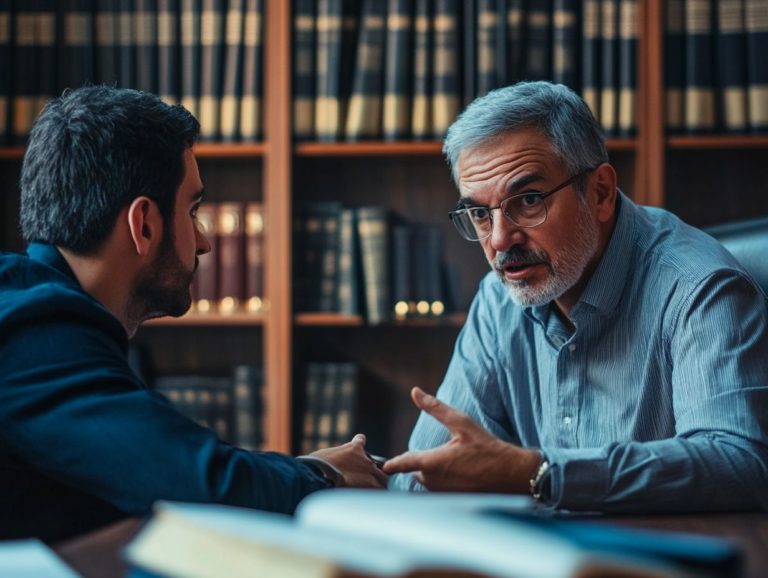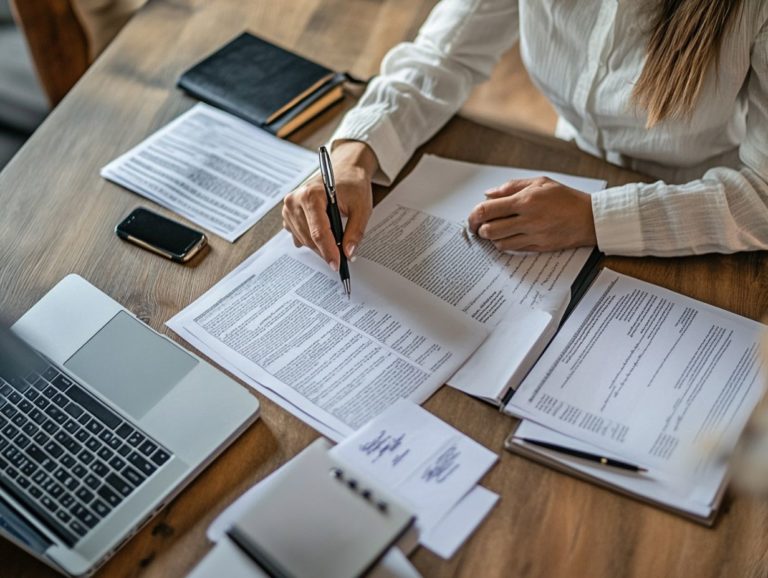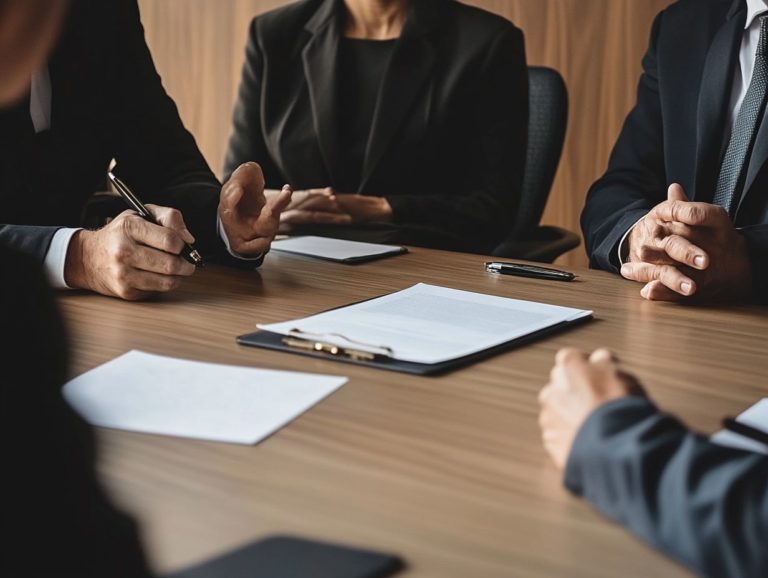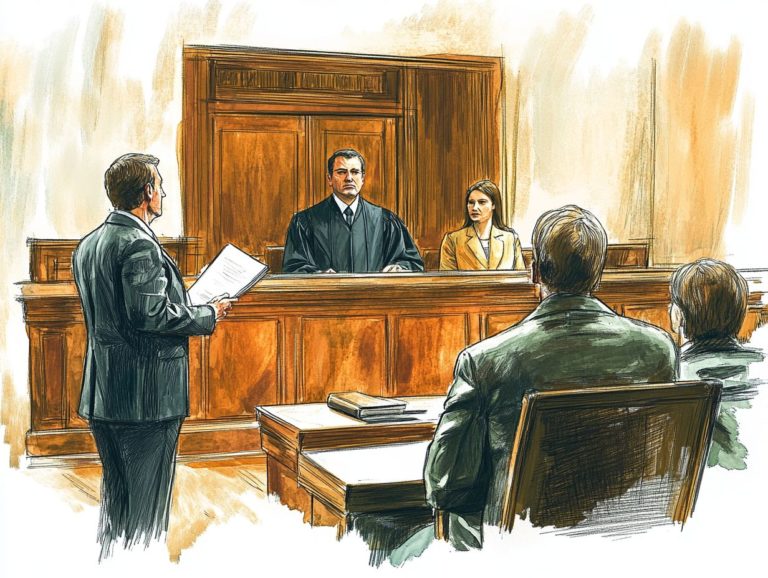How to Build a Relationship with Your Defense Attorney
Navigating the legal system can feel overwhelming, especially when facing criminal charges.
One of the most essential elements of your defense is the relationship you cultivate with your attorney. A strong connection fosters trust and encourages open communication, allowing for effective collaboration on your defense strategy.
This article discusses the significance of selecting the right defense attorney, offers strategies for nurturing a positive relationship, and outlines steps to take if challenges arise.
Understanding these dynamics can profoundly influence your case and enhance your peace of mind.
Contents
Key Takeaways:
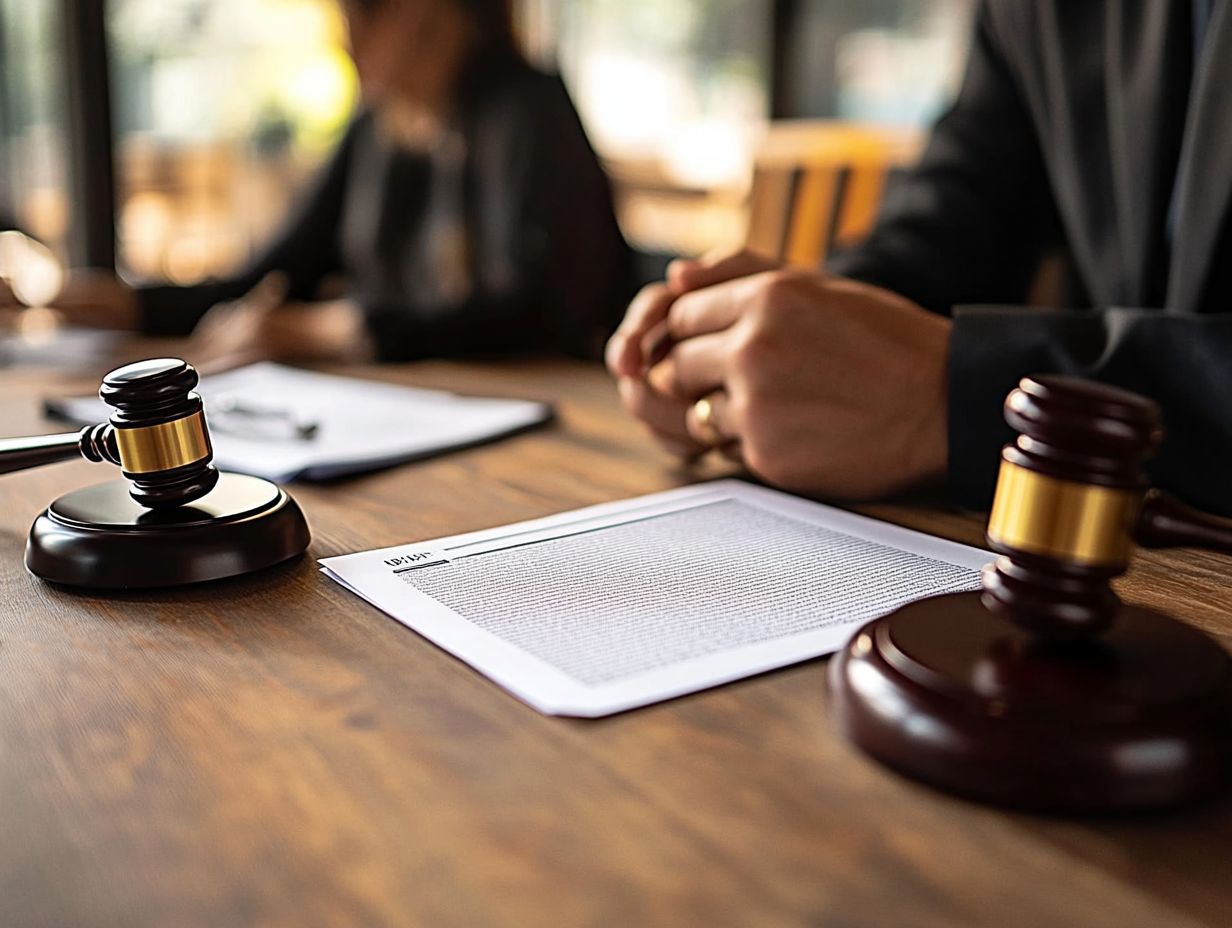
Trust and communication are essential for a successful relationship with your defense attorney. Clear and open communication helps build trust and leads to a stronger defense strategy.
When choosing a defense attorney, consider experience, expertise, and compatibility. A good fit can lead to a positive and effective working relationship.
Effective communication and collaboration with your defense attorney lead to a stronger defense strategy. Be open and honest about your case and work together to develop a solid defense plan.
Why a Good Relationship with Your Defense Attorney Matters
Building a strong relationship with your defense attorney is crucial. This is especially true in high-stakes cases in Colorado and Washington State, where outcomes can significantly affect your life.
This relationship relies on trust, effective communication, and a shared understanding of the dynamics that affect courtroom behavior. It s important to recognize the moral challenges that can significantly influence the outcome of your case.
Importance of Trust and Communication
Trust and communication are vital! They lay the groundwork for a successful relationship with your attorney, allowing you to share vital information and feel secure in your defense strategy.
When you cultivate a strong rapport with your defense attorney, you are more inclined to disclose sensitive details that could significantly influence your case’s outcome.
It’s crucial to have this conversation with your attorney, as they are duty-bound to advocate for your best interests while upholding confidentiality. Miscommunication breeds misunderstandings and can lead to harmful consequences for your case.
Take, for example, the legal drama ‘Ally McBeal,’ which often demonstrates how assumptions can jeopardize a case. In one episode, a failure to engage in clear dialogue leads the protagonist to misinterpret critical evidence, ultimately swaying the verdict.
These narratives remind us of the essential role that trust plays in effectively navigating the complexities of legal battles.
Choosing the Right Defense Attorney
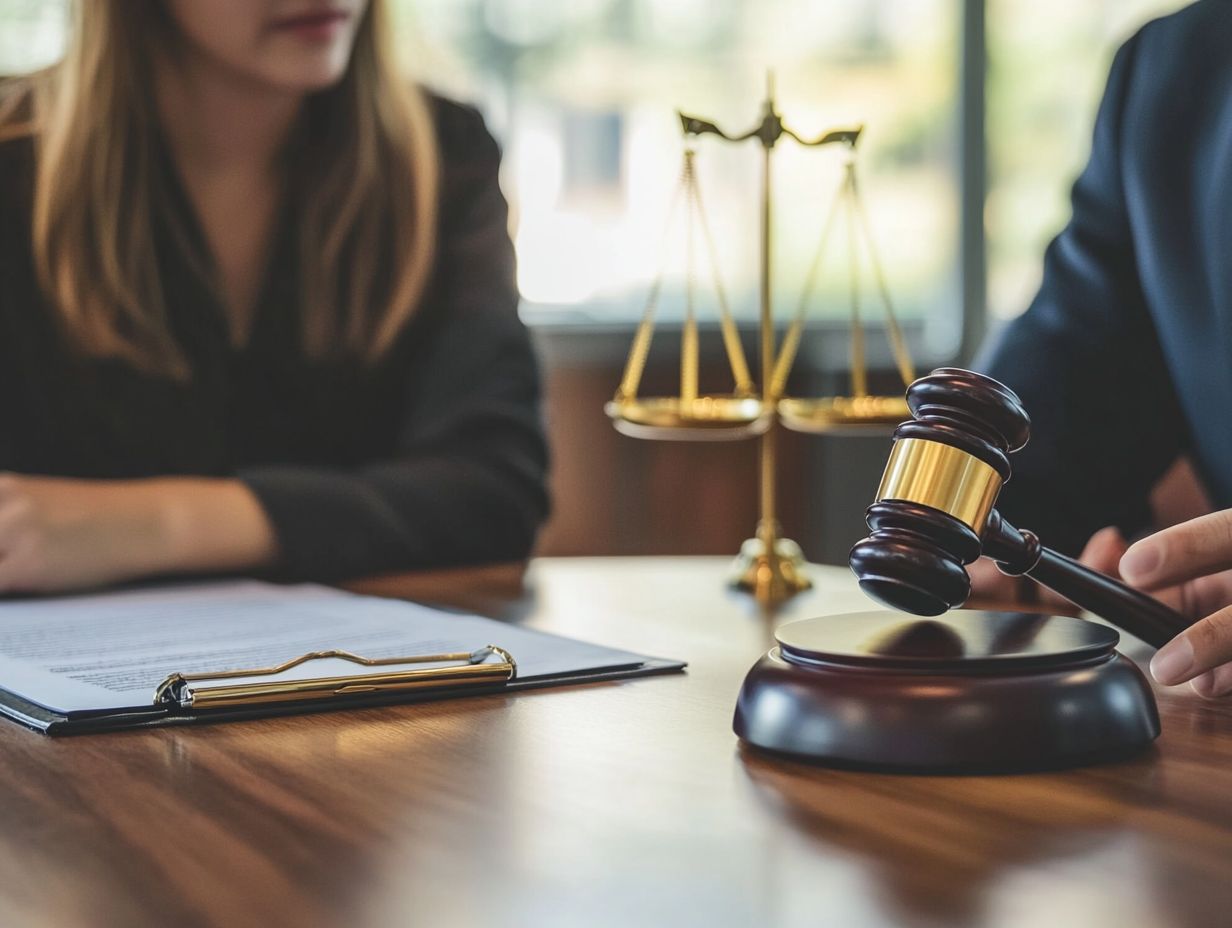
Selecting the right defense attorney is crucial, as it can significantly shape the direction of your case within the adversarial system.
In this environment, every role be it the prosecutor or defense counsel holds immense weight and responsibility in court. Your choice of attorney can make all the difference in navigating this intricate landscape.
Factors to Consider
When choosing a defense attorney, consider factors like experience, prior case representation, and familiarity with the legal culture, which are critical to your defense’s success.
It’s essential to evaluate the attorney’s specialization in criminal law, as their expertise will be invaluable in navigating the complexities of your situation. A proven track record in similar cases enhances your confidence and provides insights into potential outcomes.
An attorney’s relationship with the prosecutor’s office can greatly impact negotiations and plea deals. Courtroom demeanor matters; an attorney who presents compellingly and maintains composure under pressure can sway a judge or jury in your favor.
By selecting a lawyer who understands your unique needs, you ensure a personalized approach that fosters trust and transparency throughout the legal process.
Building a Positive Relationship with Your Defense Attorney
Establishing a positive relationship with your defense attorney is crucial for effective collaboration. Building this connection can significantly boost your case strategy as you navigate the often turbulent waters of legal dramas in the courtroom.
Effective Communication Strategies
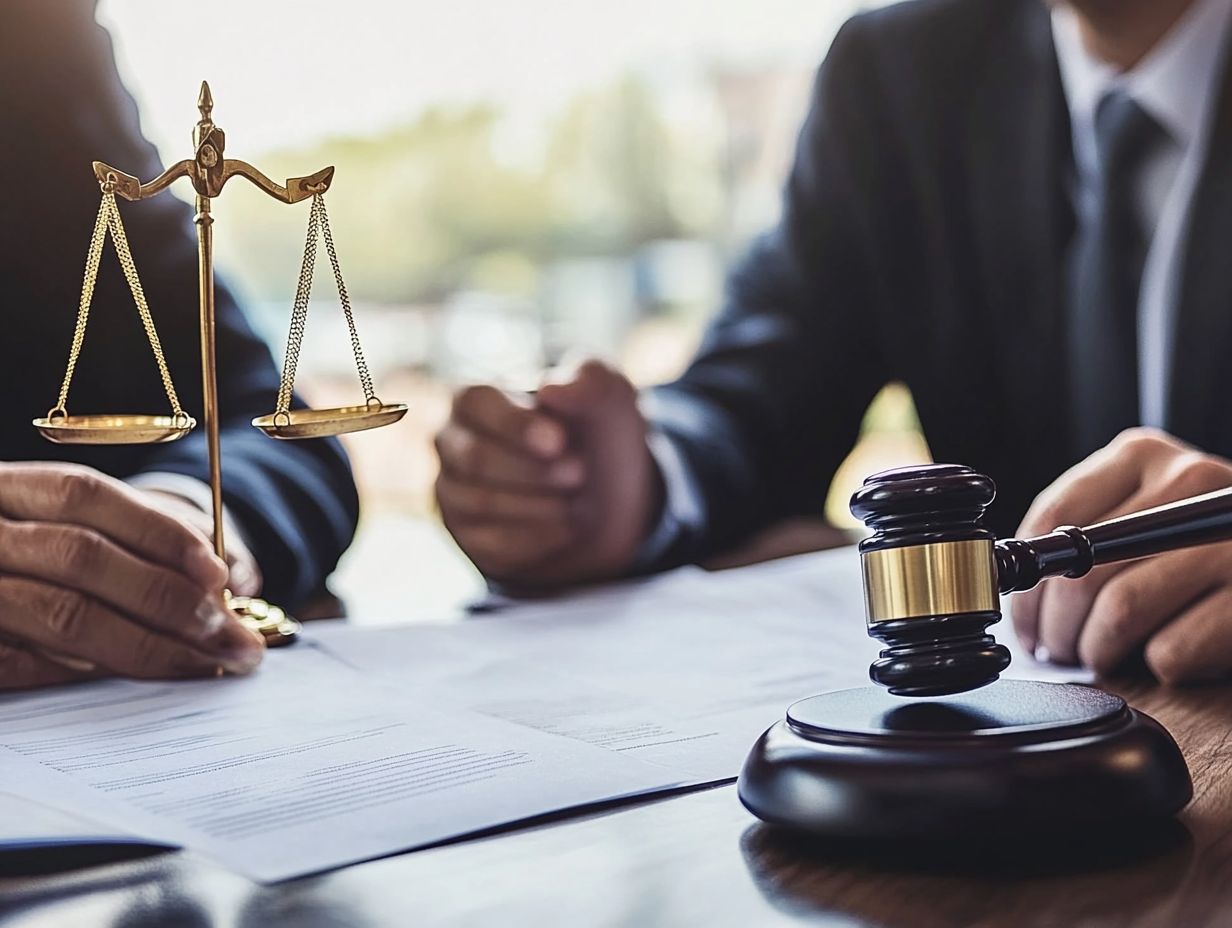
Effective communication strategies are essential for ensuring that you and your defense attorney are aligned in your objectives and expectations throughout the legal process.
Establishing clear communication channels is vital. It enables both parties to share crucial information without room for misunderstandings. Regular updates keep you informed about developments in your case, fostering a sense of inclusion and trust.
Feedback mechanisms encourage open dialogue, allowing you to express concerns or share insights about your priorities. When mutual respect exists between you and your attorney, it creates an environment where honest discussions can flourish. This respect not only strengthens your relationship but also enhances overall case outcomes, empowering you to engage actively in your defense.
Collaborating on Your Defense Strategy
Collaboration on your defense strategy is an essential aspect of case preparation. It enables you and your defense attorney to devise a tailored approach that considers the details of how the courtroom works and potential agreements to plead guilty for a lighter sentence.
This partnership bolsters your overall case while cultivating a shared understanding of the motivations and subtleties that drive the legal process. Open communication is key, fostering the exchange of information and insights that could prove crucial in crafting effective arguments.
Your defense attorney plays a pivotal role in navigating the complicated legal process, ensuring you are well-informed about your options and the broader legal landscape. By discussing various scenarios and strategies, they can help you anticipate the prosecution’s tactics, ultimately enhancing your chances of achieving a favorable outcome.
Maintaining a Strong Relationship Throughout Your Case
Maintaining a strong relationship with your defense attorney throughout your case is essential. This connection fosters trust and ensures that communication flows seamlessly and effectively.
This dynamic can significantly influence the outcome in the courtroom.
Continuing Communication and Trust
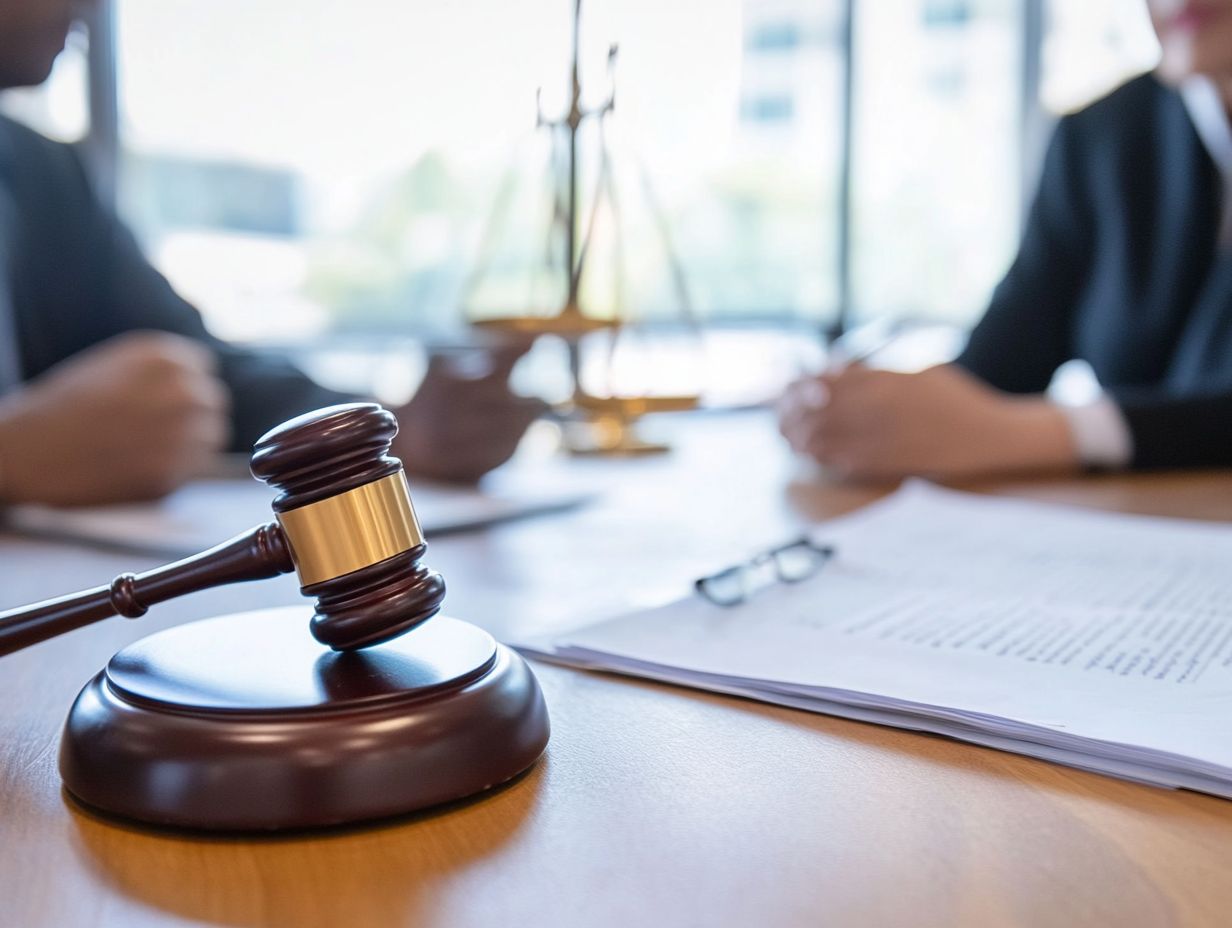
Continuing effective communication and building trust over time is essential for ensuring that you and your defense attorney remain aligned in your objectives and strategies.
This ongoing dialogue clarifies expectations and empowers you to voice concerns and offer input throughout the legal process. Transparency plays a crucial role here; when both you and your attorney are open about your thoughts and findings, it fosters a more collaborative atmosphere.
This collaboration ultimately enhances courtroom interactions, creating a sense of teamwork that resonates with jurors. By nurturing these elements, you can significantly strengthen your overall defense strategy, making it more adaptable to the nuances of the case as it unfolds.
What to Do if You Encounter Challenges with Your Defense Attorney
When you face challenges with your defense attorney, it s essential to tackle these issues directly and professionally.
Upholding legal ethics and maintaining a respectful distance can greatly impact both your attorney-client relationship and the ultimate outcomes of your case.
Addressing Issues and Finding Solutions
Addressing problems with your defense attorney requires action. Engage in open dialogue to identify concerns and find solutions within legal boundaries.
One effective strategy is to schedule regular check-ins. These sessions help you address issues before they become serious.
Document your interactions and key developments. This record serves as a helpful reference for both you and your attorney.
If conflicts arise, consider seeking outside legal counsel. A fresh perspective can reveal new solutions.
Committing to resolving conflicts strengthens your relationship with your attorney. This leads to more effective legal representation.
The Benefits of a Strong Relationship with Your Defense Attorney
A strong relationship with your defense attorney boosts your professionalism in court. It creates mutual respect that can significantly benefit your case.
This connection promotes open communication. It ensures you stay informed and comfortable with the legal strategies in play.
When you collaborate closely, it builds trust. Your attorney can better advocate for your interests, leading to better case outcomes.
A respectful attorney-client bond also helps during court proceedings. It makes interactions with the prosecutor easier and can lead to more favorable negotiations.

